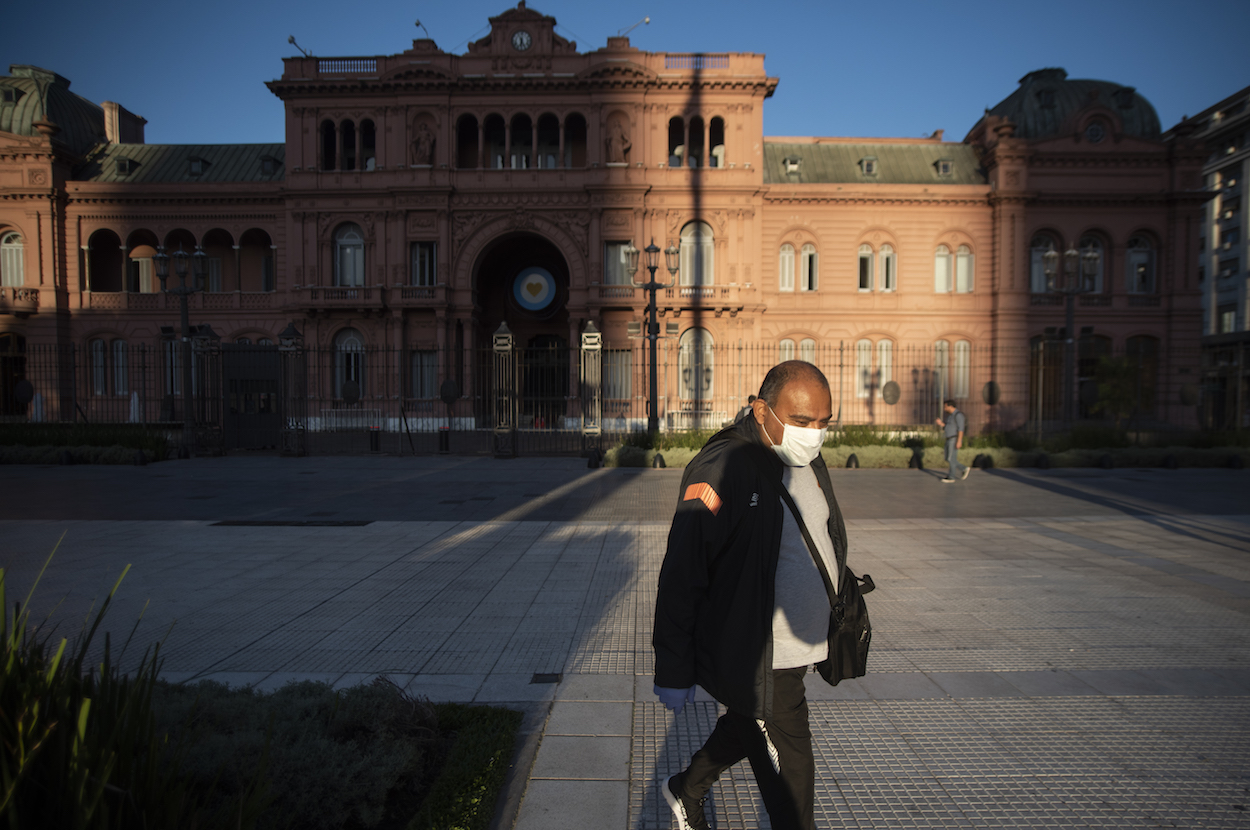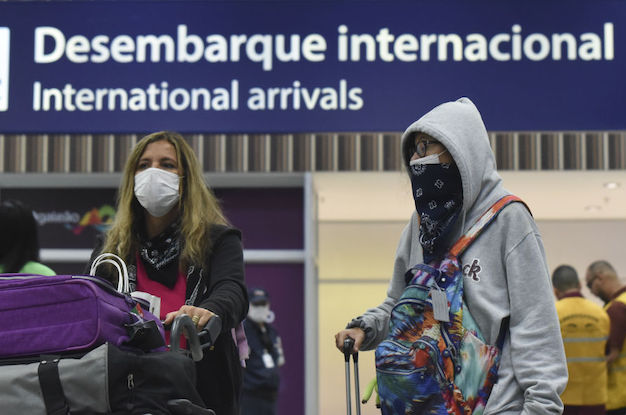The coronavirus has left many of us asking questions for which there aren’t any satisfying answers. When will this end, how did it start, who has the cure?
And who can I trust?
As the outbreak expands, so too does a chain of misinformation and half-truths intended to fool, mislead or redirect blame. In Latin America, this “fake news” could have serious consequences for both politics and public health.
With fact-checkers in the region working on overdrive, here are five of the biggest false narratives making the rounds.
DIY cures
Rumors of simple solutions to ward off COVID-19 – from eucalyptus steam in Argentina to spicy chicken broth in Mexico – have been a common feature of the region’s outbreak response.
In Venezuela, where crumbling medical infrastructure, frequent blackouts and a lack of potable water has left officials ill-prepared to deal with a rising case count, government pressure on the media has made accurate information about the virus – and how to avoid getting sick – even harder to find.
The government itself has instead stepped in to provide a purported home remedy for the virus, shared by President Nicolás Maduro and other administration officials on official social media accounts: a lemongrass tea concoction, seven times a day.
The recipe comes from Sirio Quintero, a Venezuelan nanotechnologist. Quintero explains in PDFs shared by Venezuela’s National Commission of Telecommunications online that the combination of the tea’s simple ingredients creates an “electrostatic force field” that cancels out the genetic properties of the virus.
Independent Venezuelan fact-checkers quickly debunked the recipe after seeing it on Facebook and Twitter.
“Just like the flu”
The coronavirus was declared a pandemic on March 11 by the World Health Organization, but countries have occupied different positions on the outbreak’s “curve” – opening the way for some to question just how dangerous the virus truly is.
Nowhere has the virus been more polarizing than in Brazil, where President Jair Bolsonaro continues to publicly ignore calls for social distancing and share often misleading information on social media.
The president’s attitude toward the virus may make some Brazilians more inclined to believe outlandish stories circulating on WhatsApp and social media. One widely shared story reports that a man who died in a freak accident while trying to change a tire was catalogued by authorities as having died from the coronavirus. The story even included a falsified death certificate in an attempt to discredit Brazil’s high number of recorded cases. Independent reporting, meanwhile, suggests that the country may have 12 times more cases than official figures suggest.
Blaming the other
Fake coronavirus stories have also been used to promote anti-migrant sentiments. Photos of border crossings taken out of context are offered as a warning that migrants may be bringing the virus from outside national borders.
Such has been the case in Costa Rica, where photos of the Mexican border are being shared with warnings of migrants entering from Nicaragua. Fueled in part by Nicaragua’s virtually non-existent response to the virus, the forwarded messages warn of migrants exploiting Costa Rica’s lackluster border security and claim that migrants could overwhelm the country’s health system in search of proper care.
In reality, Costa Rica and Panama have undertaken a joint effort to move migrants entering their countries to Nicaragua’s borders in efforts to minimize potential exposure to the coronavirus.
Who’s to blame?
Global conspiracy theories about how the virus started range from allegations that it was created and sold to China by a Harvard doctor to the belief that COVID-19 was let loose intentionally because it is not affecting certain strategic geographical areas.
Some widely shared posts, including one from Mexican entertainer Patricia Navidad, claim toxic radiation from 5G communications technology caused the virus, pointing to 5G as the common thread between the hardest hit countries.
Social media posts in Mexico, debunked by the fact-checkers at Animal Político, went so far as to advise people to wrap their phones in aluminum foil and put their elderly loved ones in Faraday cages in order to block out electromagnetic waves from WiFi.
The conspiracy comes as Mexico’s América Movil plans to expand 5G into Latin America and Brazil prepares for a 5G spectrum auction scheduled for later this year.
Missteps at the top
Governments and international organizations are authoritative figures in information distribution, but they are not immune to coronavirus getting their facts mixed up – and not just in Venezuela or Brazil.
Argentine President Alberto Fernández was quick to respond to the coronavirus by shutting down borders, offering economic safety nets such as the Emergency Employment and Production Assistance Program, and implementing a national quarantine.
But Fernández also at one point claimed the mortality rate for the population over 65 was 80% in Argentina. Chequeado, an Argentina-based fact checking organization, pointed out the president’s error. The highest estimate for mortality rate is closer to 22% for populations over 80, with significantly lower numbers for populations of 60-to-79, according to a report from the WHO.
Even before the coronavirus pandemic, rooting out fake news in Latin America – as with the rest of the world – was a full-time job. Now, previously circulated misinformation about the dangers of new technology, migrants draining public services, or alternative miracle cures have mutated into conversations about the coronavirus. Misguided recommendations hidden in Facebook posts and group messages could mean lives lost and a longer crisis. The fact-checkers are more important than ever.
—
Hopkins is an editorial intern for Americas Quarterly






